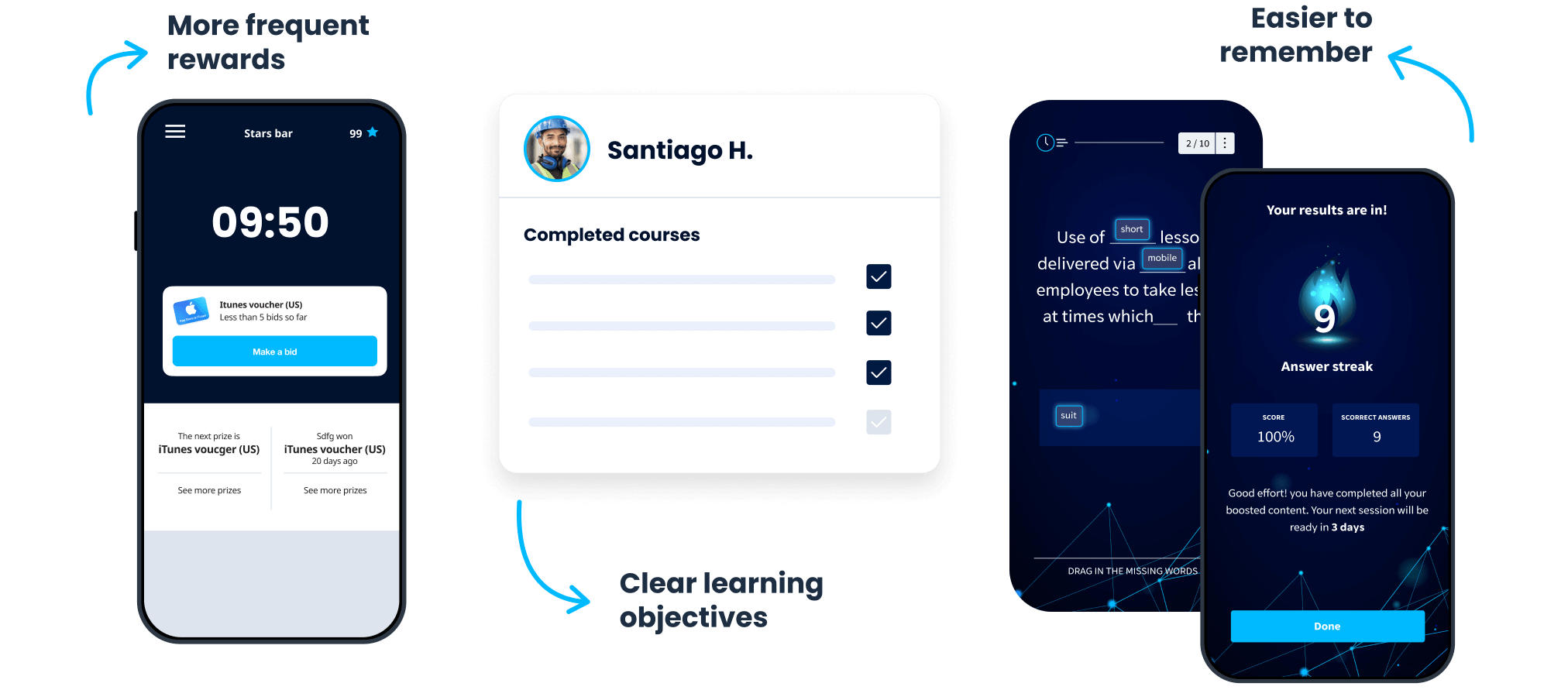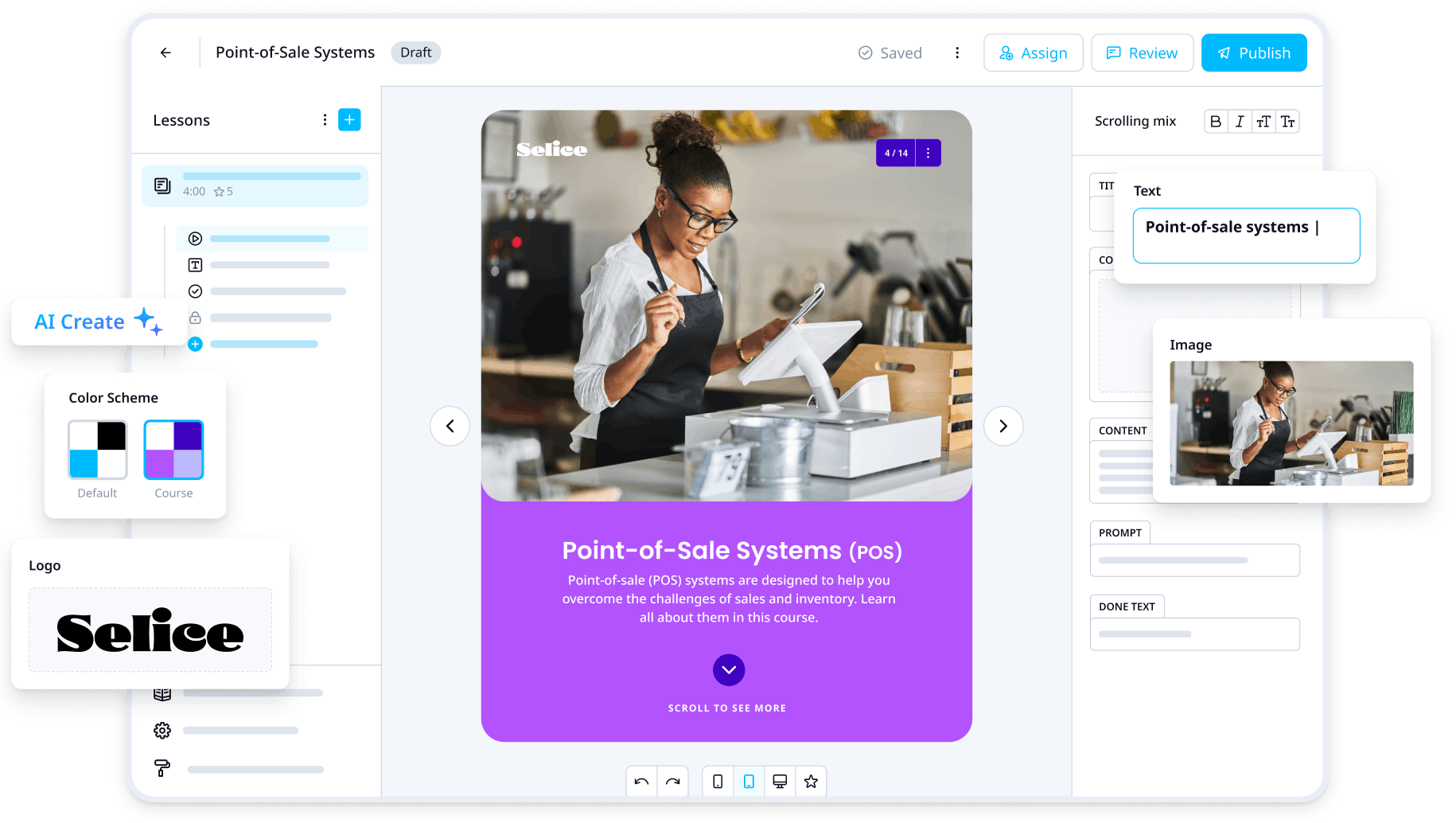The importance of explicit knowledge in your business

Data and knowledge are some of the most valuable assets any company has. Because it’s so important, information needs to be collected, stored, and shared properly. This way knowledge can be transferred in efficient ways, saving time and money at every level. In this article, we’ll discuss one of the most important examples of knowledge, explicit knowledge, and why this is key to improving your company processes.
What is explicit knowledge?
There are many types of knowledge. But, you can think of explicit knowledge as hard knowledge, or information that can easily be articulated, recorded, and communicated.
Explicit knowledge is called expressive knowledge because it can be understood in any term. Think of hard and objective data like numbers, instructions, and reports.
- Explicit knowledge is easily communicated and understood.
- Explicit knowledge is concrete.
- Explicit knowledge is recordable.
A company’s explicit knowledge often includes work processes, data, policies, and other important information that keeps the company up and running. Recording, storing, and sharing this kind of knowledge makes sure that workflows are followed and functioning. Imagine if company policies, rules, and culture aren’t on paper, it would be complete chaos.
Examples of explicit knowledge
To help you understand explicit knowledge much more easily, let’s explore some explicit examples at the workplace alongside their practical importance.
Reports
Every company makes reports whether internally or externally, and it could be for anything small and big. Reports contain data and interpretations in simple terms so viewers can easily understand a certain topic the company is concerned with. Organizations can create reports as visual presentations like PowerPoints and videos or written reports that span hundreds of pages.
Employee Handbooks
An employee handbook explains in clear terms what the company expects of its team members. These don’t just include rules but policies, codes of conduct, and most importantly the work culture. It’s also important to note that it’s just about regulating employees but showing them how each person is part of the company’s mission and vision in plain language.
Manuals
Manuals include the standards for any work-related process. This is important for quality assurance and consistency. Having concise and easily understandable manuals guarantees that employees and staff can get the job done every time. New hires also need somewhere to start, and manuals are exactly for that purpose.
Standard operating procedures (SOPs)
An SOP is activity-specific, making sure that every project and operation your organization does is in line with company and industry goals or objectives. Having a knowledge base of SOPs reduces the risk of errors, promotes a safe work environment, and assures profitability in the long run. SOPs are also always written with industry standards and guidelines.
Process/Workflow Documentation
Most great companies uphold industry standards, but each one has its processes and procedures that make them truly unique. Properly documenting processes and workflow allows teams to continually improve key areas at work to maximize efficiency. Reviewing and providing feedback regarding workflow documentation is one of the foundations of innovation in a company.
Benefits of understanding explicit knowledge
Now that we have clear examples of explicit knowledge, let’s explore the practical benefits of having an explicit knowledge base at work.
1. Efficient workers
Explicit knowledge drives the direction of work. If your teams know what to do and how to do it, they’ll be wasting less time asking questions and figuring things out. Having manuals, guidebooks, and other documented guidelines keeps everyone focused on work. It’s about making things clear and avoiding confusion.

2. Smooth workflows
A foundation of explicit knowledge keeps your teams a well-oiled machine. Workflows are easily understood and followed, which means there’s no room for conflict. When things bottleneck in processes, your teams will easily be able to identify them because of your well-documented guidelines. Your teams won’t second guess themselves at any point at work.

3. Agile decision-making
We’re not saying that explicit knowledge will completely avoid accidents or mishaps, but it’ll surely reduce the consequences. When unexpected things happen, your team members can make better decisions based on existing knowledge. Your teams will have concrete data and experience to back up decision-making, which will also boost their confidence in the long term.

4. Clear communication
Avoid miscommunication by writing things down on paper or keeping things on record. This way, there can be no argument with facts. Explicit knowledge usually includes what things are, how things should be done, and at what time frame work should be finished. Having these kinds of information standardized on record avoids confusion.

5. Quality assurance/Error Reduction
Standardizing information, processes, and protocols assures consistency, significantly preventing errors. SOPs, manuals, and handbooks offer concrete evidence that things worked and have worked so far. Having an explicit knowledge base makes sure you’re getting the same result every time.

Tacit vs. explicit knowledge
You’ll often hear the term tacit knowledge side-by-side with explicit knowledge, but what exactly are their differences? Well, tacit knowledge can be defined as soft knowledge or information that can’t be expressed in plain, simple terms. Key examples of tacit knowledge are intuition, experience, and personal wisdom. Street smarts are also a great example of tacit knowledge.

Simply,
- Explicit: objective, easily expressed, recorded, and understood.
- Tacit: subjective, abstract, comes from experience and intuition.
To give you a better idea, here are some examples of tacit knowledge at work:
- Street smarts and common sense: understanding the language, body language, and one’s way around people
- Experience: there are things on the job that you can only know through experience, like skill-based techniques, timing, and connecting with people
- Soft skills: communication skills, leadership skills, and other soft skills are part of tacit knowledge
How to transfer explicit knowledge through training
We’ve understood the deep importance of explicit knowledge at all levels of work, so now, how do we use them? Knowledge transfer is the process of sharing, circulating, and improving upon existing knowledge bases. This is important for a thriving business. And the best way to transfer explicit content is through training, in all forms. After all, explicit knowledge is all about being easily understood.

Our top recommendation to easily transfer and share explicit knowledge is through the use of elearning platforms like EdApp. With an elearning tool like EdApp, you can effortlessly use explicit knowledge. Here’s how:
Create courses for your explicit content
EdApp has an intuitive course creator tool where you can create interactive learning content out of almost anything. The tool has a PDF and PowerPoint converter so you can import existing training manuals, handbooks, and similar documents and turn them into beautiful microlearning courses with a click of a button.

Share explicit knowledge directly with your teams
You can deliver courses and learning content directly to your teams’ devices so they can access knowledge anytime, anywhere. This removes the need for sit-down training sessions so you can save time and effort. And this way, your teams can easily run through explicit knowledge materials without having to read through pages and pages of dense documents.

Track your team’s compliance progress
It’s one thing to send materials to the team and another thing to get them to understand it all. To be sure your employees understand and are compliant with important company information, you can track progress with EdApp’s reporting and analytics features. You can even send out custom push notifications to remind them about compliance deadlines!

Store and share explicit knowledge with ease today. Sign up with EdApp for free!
Author
Alec Bailon
Alec is an eLearning expert for EdApp, a pioneer LMS that designs creative mobile workplace training solutions. On the off days, they enjoy cooking, reading, or finding a live show or play to watch.
